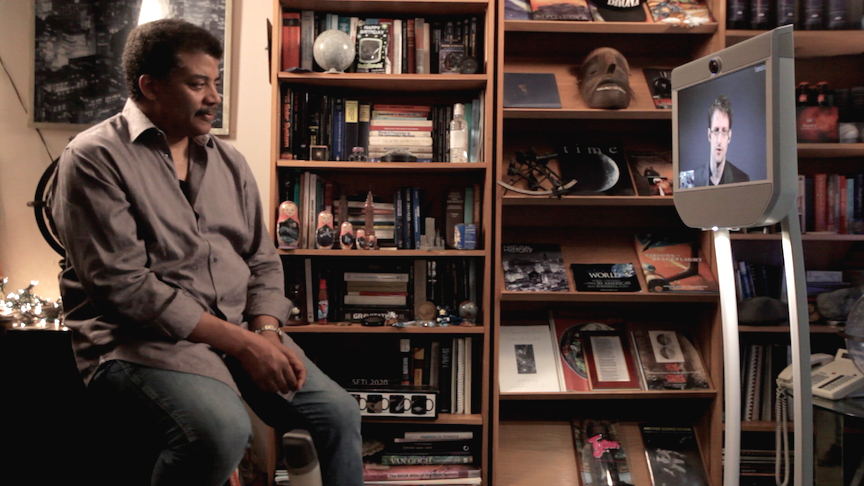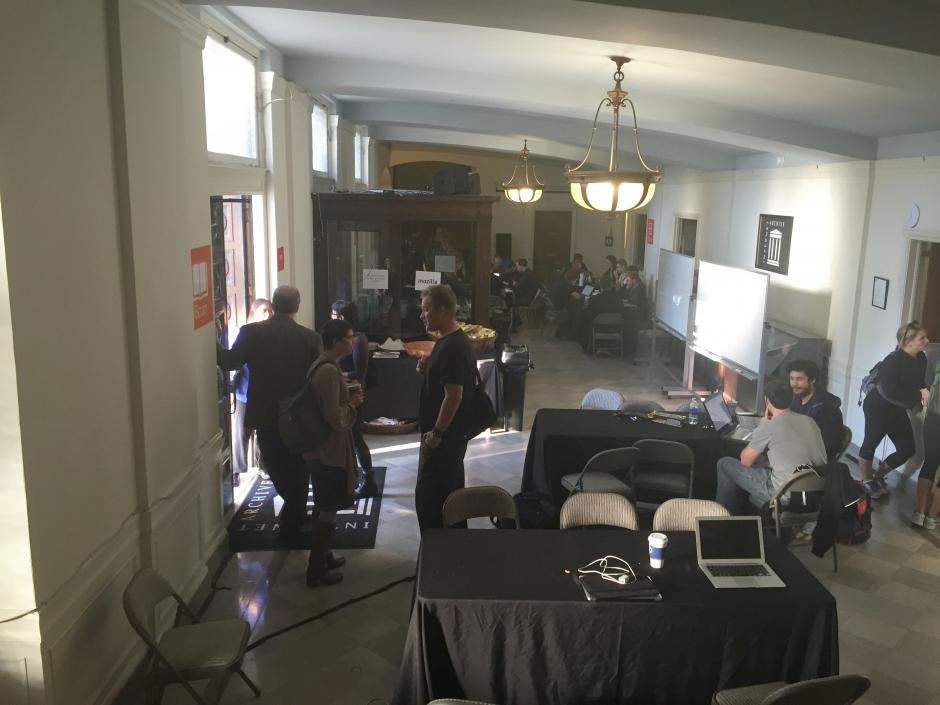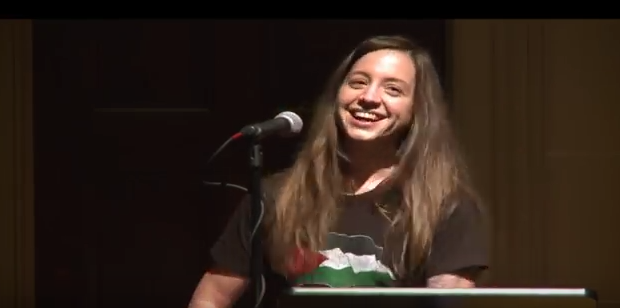
“You don’t have to justify why you need your rights. That’s not how they work. Any intrusion into your rights has to be justified by the government, rather than by you. You don’t have to say why I need this right. They have to say why is absolutely vital to society to take that right away.” – Edward Snowden.
This is from Season 6, Episode 36 of Neil deGrasse Tyson’s awesome Star Talk program. (At 39:57)
NT: Welcome back to StarTalk radio. This is a special edition of StarTalk. We chose to break from our usual format, in favor of a little one on one time.
Edward Snowden, former CIA and NSA officer, now a whistleblower, international fugitive in exile, wheeled into my office via remote controlled robot.
Through this virtual medium, Ed and I were able to speak at length about his scientific pursuits, the technology of encryption and encoding, and why he believes The Constitution trumps all other law.
Because it’s possible to think of him as just somebody who has no clue about due process, legal matters, The Constitution, The Bill of Rights, and it’s easy, at first glance, to just think of him as just some kind of ignorant renegade who has no sensitivity or understanding to American laws, but I learned that that clearly was not the case.
In this final segment, we’re going to listen to part of my exclusive interview with Ed Snowden, and get his take on 4th Amendment protection, and why he feels that having nothing to hide is never a justification for rights violations.
ES: When you’re talking about invading everybody’s private communications. Their associations. The network of who they call on the phone. You’re getting their political affiliation. You’re getting the people who matter the most to them, based on the frequency of the communications. You get indications of their travel. You get the books that they read. You get the things that they buy. You get the people that they love. And you can even get indications not only of who they are today, but who they want to be. For example, maybe they are looking at applying to a certain college program or method of study or a fellowship. Or they’re looking to get a job at a certain kind of company. These are all intensely private things that have always traditionally been up to the individual to disclose and share with people they trust.
But if the government knows all of that, about all of us, regardless of whether we’ve done anything wrong, it invests them with an extraordinary and unprecedented measure of power. Not only to know about us, but to act upon this information and particularly when these programs are regulated by secret policy rather than public law. What that means is they can disempower the public. The citizens, ya know, in their country, around the world, at the flip of a switch, and that’s something that we’ve never trusted government with before, and there’s no prevailing reason why we should today.
NT: So, you raised a very good point. Now I’ll feel more comfortable about going through airport security because, even though they’ve got my ticket, and they know, and I’ve checked in, and they saw my passport and everything. When you’re going through the detectors, they’re not asking you your name. Your name isn’t attached with that moment. They just want to see if you’re carrying anything. Plus I can choose to drive. I can leave the airport and choose to drive. So that’s a different fact. At least traveling domestically. Right?
ES: There’s a distinction between the voluntary disclosure of information, where you have a choice, whether to engage in it or not, and the involuntary subversion of your intent. Particularly, unlike airports, where everybody knows this is the law. We can vote for officials who would repeal it and whatnot, and secret programs where they impose this sort of surveillance on us without our awareness, without our intent, without our approval, or even without the approval of many members of Congress.
In May, the Second Circuit Court of Appeals, in New York, found that the National Security Agency’s mass surveillance programs, one of which I revealed in June of 2013, was illegal. It had not been authorized by any law, and for the entire period of its operation, ya know, this was not only contrary to law but it was in violation of it. And as a result, this program needs to be changed or ended. Now this happened without the majority of congress knowing that it was occurring at all.
For example, when we talk about the oversight of intelligence agencies, such as the National Security Agency or the Central Intelligence Agency, we have 535 members of congress, all of whom represent a proportional amount of Americans, who are supposed to represent us at the table of government. But rather than having them all understand and be able to influence the direction of these programs. For what are called “covert action programs,” only 8 members of congress, out of 535, are told the truth of what’s going on. This is called the “Gang of 8.” And I think what the court held in May was that you cannot substitute the judgement of 8 individuals, particularly given that these 8 individuals receive more donations from intelligence contracting companies and defense contractors, sort of the military-industrial complex, than any other senators or representatives in the congress, for the judgement of the congress as a whole and the public.
NT: So suppose. This is a very supposey thing. Suppose the public says, “I really care about my security, and I want the government to spy on everybody, so that I can be safe,” and they then turn that law into something legal. You’d have no problem with that, because there was disclosure on it, I presume. Is that correct? In a democracy we would vote for it, possibly.
ES: On the point of disclosure I would argue “yes, that’s much better than what we have today.” But on the point of rightfulness and morality, I could still contest it. And I think the argument there, that anybody who works in sort of the civil liberties space who believes in robust rights. Who believes in The Constitution, would argue that congress actually cannot pass such a law that allows the monitoring of people that allows the sort of the unreasonable search and seizure of individuals in advance of criminal activity because The Constitution forbids it in the 4th Amendment. If they want to do that they would have to amend The Constitution.
But even if they chose to, there’s fundamentally a deeper, I think, moral point here, which is the majority cannot vote away the rights of the minority. You cannot simply say well, “because I feel this way and because I have, ya know, 6 out of my 10 friends who agree with me, I’m going to reduce the circumstances of everybody else in those 4 out of 10. When we talk about the basis of actual human rights. You know, you can change standards. You can change regulations. But when we think about fundamental rights, and these are rights that the U.S. Government itself has actively and aggressively advocated in the past.
For example, the right to privacy is guaranteed not only in the 4th Amendment of our Constitution, or in the associational rights of sort of The First Amendment, but through the Universal Declaration of Human Rights to which the United States and most other countries in the world have agreed to, or the International Covenant on Civil and Political Rights, which again, the U.S. itself, promoted. So, we have treaty obligations which, in the American system, are counted as the supreme law of the land, similar to The Constitution, and then we have mere statutes that are passed in congress. Can a statute passed in a time of sort of political passions overrule basic fundamental rights that are guaranteed not only in our founding documents, but in our treaties and our obligations that we’ve said are timeless, and even if they were would that be a good thing. I think that’s very much an argument to be had.
And sort of the corollary argument that we hear against this to try to get us to accept invasive surveillance or violations of our rights. Is that “well if you’ve got nothing to hide you’ve got nothing to fear. What are you worried about?”
But that argument is premised on a fundamental misunderstanding of rights. For one, you don’t have to justify why you need your rights. That’s not how they work. Any intrusion into your rights has to be justified by the government, rather than by you. You don’t have to say why I need this right. They have to say why is absolutely vital to society to take that right away. But beyond that, when we think about what people are really saying when they say “oh, I don’t really care about that. I really don’t care about privacy. I’ve got nothing to hide.” Is they’re saying they don’t care about that right.
Saying that “I don’t care about privacy because I’ve got nothing to hide,” is no different than “I don’t care about freedom of speech because I have nothing to say.” You’re asking for a less liberal, more constrained society, simply because that right is not valuable to you in that moment when you’re thinking about it today. But rights don’t have to be used by you individually to be valuable to a society. You can’t have a free press, without freedom of speech, and you can’t have a free society without the right to privacy.

